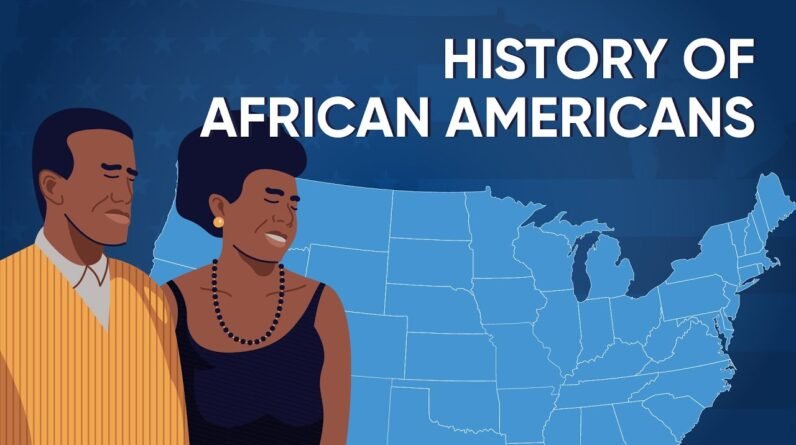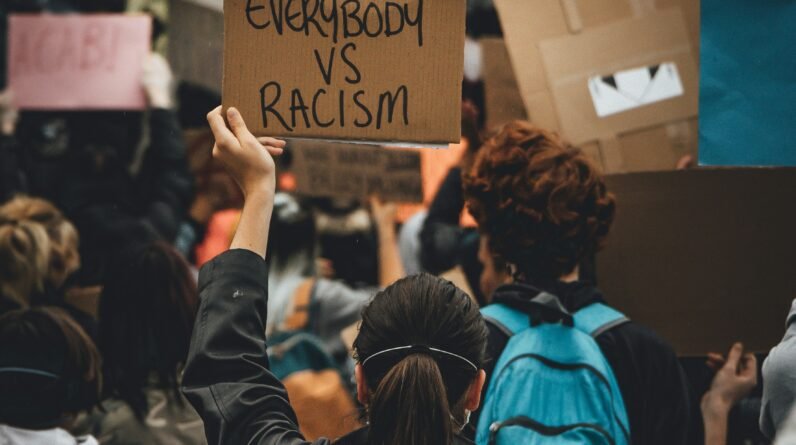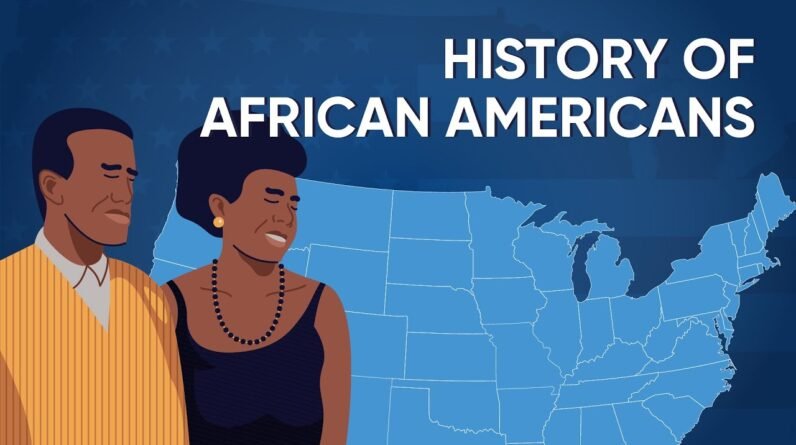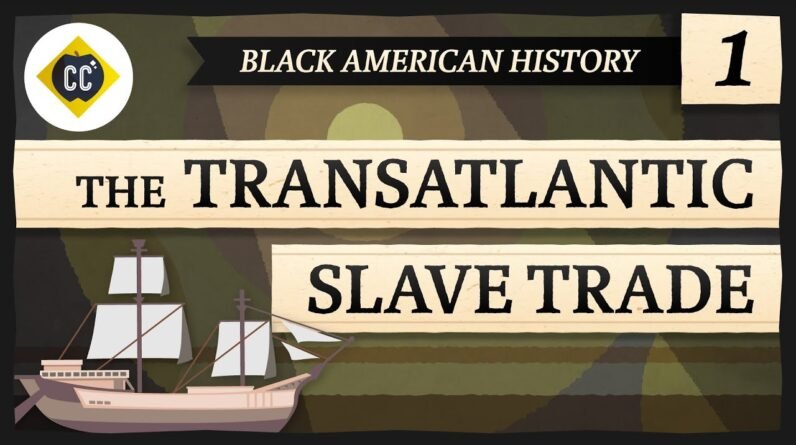Understanding the African American Experience
Understanding the African American Experience. Have you ever wondered about the rich and diverse history of the African American experience? Well, it’s time to embark on a fascinating journey of discovery as we unravel the true essence and significance of this cultural tapestry. Delve into the pages of history and explore the struggles, triumphs, and contributions of African Americans that have shaped society as we know it today. From the brutal context of slavery to the Civil Rights Movement and beyond, this article will shed light on the myriad dimensions of the African American experience, offering you a deeper understanding of its profound impact on the world. So, get ready to uncover a wealth of knowledge and gain a fresh perspective on this vibrant and influential heritage.
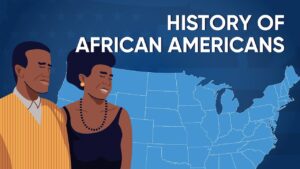
History of African Americans
African Americans have a rich history that spans centuries and has shaped the landscape of America. From their origins to the challenges faced and milestones achieved, this article will provide an in-depth look at the journey of African Americans.
Origins of African Americans
The origins of African Americans can be traced back to the transatlantic slave trade during the 16th to 19th centuries. Millions of Africans were forcefully taken from their homelands, primarily from West and Central Africa, and brought to the Americas. The brutal conditions of the Middle Passage and the inhumane treatment endured by these enslaved individuals laid the foundation for the African American experience.
Slavery in America
Slavery in America officially began in Jamestown, Virginia in 1619, when a Portuguese ship brought a group of enslaved Africans to the British colony. Over the next few centuries, slavery became deeply entrenched in the Southern states, primarily due to the economic reliance on labor-intensive crops, such as tobacco, rice, and cotton. Slaves were considered property and subjected to physical and psychological abuse, denied basic rights, and torn apart from their families through the horrific practice of the domestic slave trade.
Impact of the Civil War
The Civil War, which took place from 1861 to 1865, had a profound impact on the lives of African Americans. The war was fought, in part, over the issue of slavery and the desire for Southern states to secede. The Union victory led to the abolition of slavery with the Emancipation Proclamation in 1863 and the ratification of the 13th Amendment in 1865, which officially abolished slavery throughout the entire United States. However, the promise of freedom did not immediately eliminate racial inequality and discrimination.
Reconstruction Era
Following the Civil War, the Reconstruction Era marked a period of hope and progress for African Americans. Freed slaves sought to exercise their newfound rights and actively participate in the political and social life of the country. The Reconstruction Amendments, including the 14th and 15th Amendments, granted essential civil rights and voting rights. African Americans also established schools, churches, and community organizations, contributing to the development of their own communities.
Jim Crow Era
Unfortunately, the gains made during Reconstruction were short-lived. The rise of Jim Crow laws and policies in the late 19th and early 20th centuries reintroduced segregation and racial discrimination in the South and beyond. African Americans faced systemic racism, denied access to public facilities, education, and voting rights. Lynchings and racial violence were all too common, further perpetuating fear and oppression.
Civil Rights Movement
The Civil Rights Movement, spanning from the 1950s to the 1960s, marked a pivotal moment in African American history. Led by influential figures such as Martin Luther King Jr., Rosa Parks, and Malcolm X, African Americans fought for equal rights, desegregation, and an end to racial discrimination. The movement included nonviolent protests, civil disobedience, and legal battles to challenge discriminatory laws. The landmark achievements of this era, such as the Civil Rights Act of 1964 and the Voting Rights Act of 1965, brought about significant changes in the legal and social landscape of the United States.
Notable Figures in African American History
Throughout history, African Americans have championed various causes and made significant contributions to society. The following individuals represent just a few of the many notable figures who have left an indelible mark on African American history.
Frederick Douglass
Frederick Douglass was a prominent social reformer, abolitionist, and writer during the 19th century. Born into slavery, he escaped to the North and became a powerful voice against slavery. Douglass’ powerful autobiographies and speeches, such as “Narrative of the Life of Frederick Douglass, an American Slave,” exposed the horrors of slavery and sparked public awareness and support for abolition.
Harriet Tubman
Harriet Tubman is best known for her courageous efforts as a “conductor” on the Underground Railroad, a network of safe houses and routes that helped enslaved individuals escape to freedom. Born into slavery, Tubman not only secured her own liberation but made it her mission to rescue and guide countless others to freedom. Her bravery and determination have made her a symbol of resistance and empowerment to this day.
Martin Luther King Jr.
Martin Luther King Jr. was a charismatic and influential leader in the Civil Rights Movement. Known for his soaring speeches, including the iconic “I Have a Dream” speech, King advocated for nonviolent protests and civil disobedience to bring about social change. His tireless efforts and ultimate sacrifice helped propel the nation towards a more inclusive and just society.
Malcolm X
Malcolm X was a prominent civil rights activist and leader in the 1960s. Initially advocating for black separatism and self-defense, he later shifted towards a more inclusive philosophy, emphasizing unity and equality among all races. Malcolm X’s fiery speeches and writings, such as “The Autobiography of Malcolm X,” continue to inspire and challenge conversations surrounding racial justice.
Rosa Parks
Rosa Parks is often referred to as the “Mother of the Civil Rights Movement.” Her refusal to give up her seat on a segregated bus in Montgomery, Alabama, sparked the Montgomery Bus Boycott, a pivotal event in the struggle for desegregation. Parks’ act of defiance became a catalyst for the broader Civil Rights Movement and helped draw attention to the ongoing racial injustices faced by African Americans.
African American Culture and Contributions
African American culture has greatly influenced and enriched American society in numerous ways. From art and literature to music, sports, and cuisine, African Americans have made significant contributions that have shaped the fabric of American culture.
Art and Literature
African American art and literature have long been regarded as important expressions of identity, creativity, and resistance. Artists such as Jacob Lawrence, Romare Bearden, and Faith Ringgold have used their work to depict the African American experience and address issues of race, inequality, and social justice. In literature, authors like Zora Neale Hurston, Langston Hughes, and Toni Morrison have given voice to African American stories, offering unique perspectives on race, identity, and the human experience.
Music and Dance
African American music has profoundly influenced various genres and has had a global impact. From the spirituals and work songs of the enslaved to the blues, jazz, gospel, rhythm and blues, and hip-hop, African Americans have continuously shaped the trajectory of music. Artists like Louis Armstrong, Ella Fitzgerald, Aretha Franklin, and Beyoncé have not only achieved remarkable success but have also become cultural icons who have broken barriers and pushed boundaries.
Dance is another vibrant aspect of African American culture. From traditional African dances brought over during slavery to the emergence of jazz and hip-hop dances, African American dancers have created innovative movements that reflect their heritage and experiences. Institutions like Alvin Ailey American Dance Theater have provided platforms for African American dancers to showcase their talent and preserve their cultural traditions.
Sports and Athletics
African American athletes have excelled and achieved greatness in various sports, challenging racial stereotypes and breaking records. From the achievements of pioneering figures like Jackie Robinson, who broke the color barrier in Major League Baseball, to athletes like Serena Williams, Michael Jordan, and Simone Biles, African Americans have left an indelible mark on the world of sports. Their accomplishments have not only inspired future generations but also sparked conversations about equality and representation within the sporting world.
Cuisine and Culinary Influence
African American cuisine, often referred to as soul food, is a fusion of traditional African, European, and Native American culinary traditions. Dishes such as gumbo, collard greens, fried chicken, and cornbread have become iconic and beloved parts of American cuisine. African American chefs and restaurateurs, such as Edna Lewis, Leah Chase, and Marcus Samuelsson, have elevated soul food to new heights and brought attention to the rich culinary heritage of African Americans.
Challenges and Struggles Faced by African Americans
Despite significant progress, African Americans continue to face a myriad of challenges and struggles rooted in centuries of systemic racism and discrimination. The following are some of the major issues that have impacted the African American community.
Racial Discrimination
Racial discrimination remains a pervasive and deeply ingrained issue in American society. African Americans face disparities in various areas, including education, employment, housing, and the criminal justice system. Whether it manifests in unequal treatment, unfair policies, or implicit biases, racial discrimination continues to hinder opportunities for African Americans and perpetuate social inequities.
Segregation and Redlining
Although legal segregation was officially abolished with the passage of the Civil Rights Act of 1964, the legacy of segregation continues to shape communities and perpetuate inequality. Redlining, a discriminatory practice by which banks and lending institutions denied loans and resources to African American neighborhoods, has had lasting effects on economic mobility and community development. Segregated communities often lack access to quality education, healthcare, and economic opportunities, exacerbating existing disparities.
Voting Rights
The struggle for voting rights has been central to the African American fight for equality. From the Jim Crow era, with voter suppression tactics such as poll taxes and literacy tests, to more recent challenges with gerrymandering and voter ID laws, African Americans have continuously faced barriers to exercising their right to vote. Efforts to suppress minority votes have undermined democratic principles and hindered political representation.
Economic Disparities
Persistent economic disparities disproportionately affect African Americans. While progress has been made, African Americans still face higher rates of poverty, lower wages, and limited access to economic opportunities. Factors such as historical disadvantages, educational barriers, and discriminatory practices contribute to these disparities, creating significant challenges for economic advancement and wealth accumulation within the African American community.
Police Brutality
Police brutality and the unjust treatment of African Americans by law enforcement have sparked outrage and demands for systemic change. High-profile cases of police violence, such as the killings of Trayvon Martin, Michael Brown, and George Floyd, have brought attention to the disproportionate use of force against African Americans. These incidents have underscored the urgent need for criminal justice reform and police accountability to address the systemic racism that persists within law enforcement agencies.

African American Identity and Community
African Americans have a unique dual identity, navigating between the heritage of their African roots and the experiences of being African American in the United States. This duality plays a pivotal role in shaping their sense of self, community, and belonging.
Dual Identity
African Americans often embrace a dual identity that acknowledges their African heritage while embracing their American experience. Many seek to honor their ancestral roots and cultural traditions while simultaneously contributing to and shaping American society. This dual identity is reflected in various aspects of African American culture, from language and spirituality to art, music, and cuisine.
Social Movements and Community Organizations
African Americans have a long history of organizing and mobilizing for social change. From the early civil rights efforts to the Black Lives Matter movement, African Americans have consistently fought for justice, equal rights, and an end to systemic racism. Community organizations such as the NAACP, the National Urban League, and Black Lives Matter have provided platforms for advocacy, education, and community empowerment.
Religion and Spirituality
Religion and spirituality have played a significant role in African American culture and community. African Americans have a diverse range of religious affiliations, including Christianity, Islam, and various traditional African religious practices. Churches have historically served as not only places of worship but also as hubs for social and political organizing, providing spiritual guidance and a sense of community.
Family Structure and Values
The African American family structure and values have been shaped by historical circumstances and cultural adaptations. Due to the legacy of slavery that often led to the separation of families, African American families have been resilient and developed strong kinship and community networks. These networks support and prioritize the importance of family bonds, education, and the nurturing of future generations as a means of overcoming adversity.
Education and Achievement
Education has long been a pathway to social progress and economic mobility. However, African Americans have historically faced barriers to accessing quality education. Despite these challenges, African American scholars, educators, and institutions have made tremendous contributions to the field of education.
Historical Barriers to Education
During the era of slavery, African Americans were systematically denied education as it was deemed a threat to the institution of slavery. Even after emancipation, educational opportunities for African Americans were limited and segregated. Separate and unequal school systems further perpetuated inequality and hindered academic achievement.
The Importance of Historically Black Colleges and Universities
Historically Black Colleges and Universities (HBCUs) emerged as vital institutions in providing higher education opportunities for African Americans. HBCUs, such as Howard University, Spelman College, and Morehouse College, were founded during a time when African Americans were barred from attending predominantly white institutions. These institutions have played a crucial role in nurturing African American intellectuals, leaders, and professionals across various fields.
Notable African American Scholars and Achievers
African Americans have made significant contributions to academia and various fields of study. From pioneering figures like W.E.B. Du Bois, the first African American to earn a Ph.D. from Harvard University, to contemporary scholars like Angela Davis and Cornel West, African American intellectuals have produced groundbreaking research and challenged mainstream narratives. Their contributions have not only enriched academic disciplines but also offered new perspectives on history, sociology, literature, and beyond.
African Americans in the Military
African Americans have a long history of serving in the United States military, despite facing discrimination and segregation within the armed forces. Their contributions and sacrifices have played a significant role in shaping the military landscape and advancing civil rights.
Buffalo Soldiers
The Buffalo Soldiers were African American soldiers who served in segregated units within the United States Army after the Civil War. These soldiers played a crucial role in the Westward expansion, serving as peacekeepers, protecting settlers, and participating in combat operations. The Buffalo Soldiers earned a reputation for their bravery and professionalism, while also challenging racial stereotypes and paving the way for future African Americans in the military.
Tuskegee Airmen
During World War II, the Tuskegee Airmen were the first African American military aviators in the United States Armed Forces. Despite facing racial discrimination and limited opportunities, these pilots overcame adversity to become one of the most highly respected fighter groups of the war. Their contributions not only advanced the cause of civil rights and equality but also demonstrated African Americans’ capabilities as skilled aviators and leaders.
Integration of the Armed Forces
The integration of the United States Armed Forces was a milestone in African American history. President Harry S. Truman issued an executive order in 1948 to desegregate the military, marking a significant step towards racial equality within the armed forces. The integration of African Americans into all branches of the military opened doors for future generations and paved the way for more inclusive military institutions.
Representation in Media and Entertainment
African Americans have long fought for representation in media and entertainment industries, striving to overcome negative stereotypes and underrepresentation. Despite the challenges faced, African American actors, musicians, and entertainers have broken through barriers to become influential figures and inspire change.
Negative Stereotypes and Underrepresentation
For decades, the portrayal of African Americans in mainstream media often perpetuated negative stereotypes, reinforcing racial biases and limiting opportunities for African American actors and performers. Underrepresentation was also prevalent, with limited opportunities for African Americans to showcase their talents and achieve mainstream success.
Prominent African American Actors and Actresses
Over the years, African American actors and actresses have made significant strides in the entertainment industry, challenging stereotypes and opening doors for future generations. Figures like Sidney Poitier, Halle Berry, Denzel Washington, and Viola Davis have achieved critical acclaim and broken barriers, becoming influential figures within the industry.
Influential Musicians and Entertainers
African American musicians and entertainers have had a profound impact on the music and entertainment landscape. From jazz pioneers like Louis Armstrong and Duke Ellington to pop icons like Michael Jackson and Beyoncé, African American artists have shaped genres, set trends, and influenced popular culture worldwide. Their contributions extend beyond entertainment, serving as a platform for social commentary and cultural empowerment.
Influence of African American Vernacular English
African American Vernacular English (AAVE), also known as African American English or Ebonics, is a distinctive dialect spoken by many African Americans. AAVE has its roots in the linguistic patterns developed during slavery and has since evolved as a significant aspect of African American identity and culture.
Origins and Development
AAVE emerged as a distinct dialect as a result of the linguistic mixing and adaptation during slavery and subsequent interactions between African Americans and European Americans. The roots of AAVE can be traced back to West African languages and various forms of English spoken during the colonial period. Over time, AAVE has evolved into a complex and unique linguistic system with its own grammatical structures, vocabulary, and pronunciation patterns.
Impact on Language and Culture
AAVE has had a significant impact on American English and popular culture. Its distinct vocabulary, grammatical structures, and expressive qualities have influenced various aspects of American English, including slang, music lyrics, and everyday speech. AAVE has also become a cultural identifier and a source of pride for many African Americans, representing resilience, creativity, and a connection to their ancestral heritage.
Contemporary Issues and Progress
While progress has undeniably been made, African Americans continue to face contemporary issues rooted in systemic racism and inequality. However, strides have also been made toward achieving equality and justice in various areas.
Black Lives Matter Movement
The Black Lives Matter (BLM) movement, founded in 2013, emerged as a response to the continued violence and systemic racism faced by African Americans. BLM advocates for an end to police brutality, racial profiling, and the criminalization of African American communities. The movement has sparked a global reckoning with racial injustice, leading to widespread protests, policy reforms, and a renewed commitment to addressing systemic racism.
Political Representation
African Americans have made significant strides in political representation, breaking barriers and holding positions of power and influence. Figures such as Barack Obama, the first African American President of the United States, and Kamala Harris, the first African American and Asian American Vice President, have shattered glass ceilings and inspired future generations to pursue leadership roles in politics.
Advancements in Education and Employment
Efforts to address disparities in education and employment have led to advancements for African Americans. Initiatives focusing on early childhood education, college access, and workforce development programs have helped expand opportunities for African American students and job seekers. However, persistent achievement gaps and economic disparities remind us that more work needs to be done to ensure equal access and opportunities for all.
As we discussed, the history of African Americans is a complex and multifaceted tale of resilience, struggle, and triumph. From the horrors of slavery to the achievements of the Civil Rights Movement, African Americans have played a pivotal role in shaping the United States. Their contributions to various fields, cultural expressions, and advocacy for equality continue to shape society and inspire future generations. Understanding this rich history is crucial in fostering empathy, promoting social justice, and working towards a more inclusive and equitable future for all.





